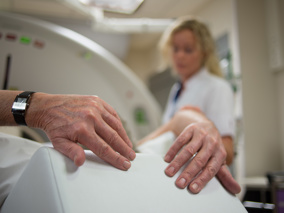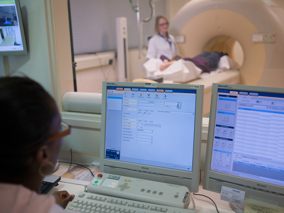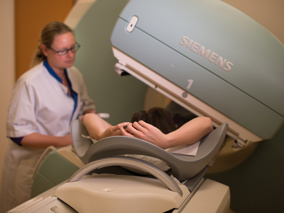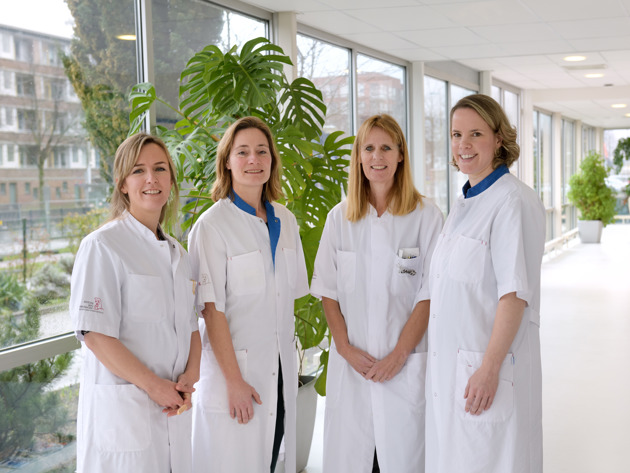Neuroendocrine Tumors (NETs)
A Neuroendocrine tumor - also called NETs - is a rare type of cancer. On average, 700 people per year are diagnosed with NETs. NETs arise from neuroendocrine cells. Neuroendocrine cells are spread throughout the body. The tumor can therefore arise anywhere in the body. Most NETs originate in the gastrointestinal tract, pancreas and lungs.
We distinguish between NETs (neuroendocrine tumours) and NEC (neuroendocrine carcinomas). Tumors designated by the term NETs are then classified into grades 1, 2, and 3. This grade says something about the growth rate, grade 1 generally divides more slowly than grade 3. NEC behave more aggressively than NETs and are also treated differently, which is why they are seen as a separate group.
On this page you can read more about the symptoms and the most commonly used examinations and forms of treatment for neuroendocrine tumours.
Visit our NET Centre and read more about the NET Centre as a recognised centre of expertise in the Netherlands, the specialists and patient satisfaction.
What are the different neuroendocrine tumors?
Symptoms of neuroendocrine tumors (NETs)
The symptoms of neuroendocrine tumors (NETs) are diverse. If you have a gut NET, you may experience:
- abdominal cramps;
- nausea;
- diarrhoea.
In the case of a lung NET:
- cough;
- fever.
You may also experience the substances that secrete the NETs, especially in the case of metastases in the liver. This can cause hot flashes, diarrhea, abdominal pain, or vomiting, especially after drinking red wine. In general, you may feel tired and have little appetite.
Treatment options
Exactly which treatment you will receive depends on the following factors:
- Your fitness
- The growth rate of the tumor and metastases
- The site where the NETs originated (primary tumour)
- The size (extent) of the tumors
- The size, location and amount of metastases
- Whether the tumor produces hormones
- The type of hormone that the NETs produce.

Read more about the appreciation of our patients, the competence of our specialists, the treatment outcomes and waiting times for the treatment of neuroendocrine tumours.
Expertise
It is very important to see a specialist who has a lot of experience with NETs and who treats many patients with NETs, because NETs are rare. For this reason, there are a number of recognised centres of expertise for NETs in the Netherlands, including the Netherlands Cancer Institute.
 nl
nl








